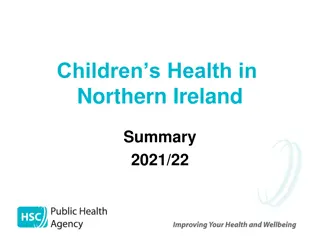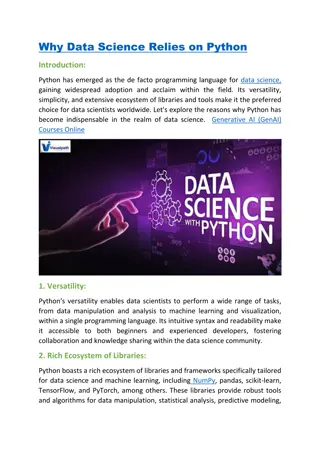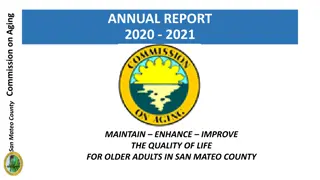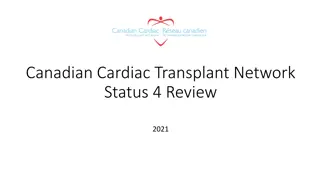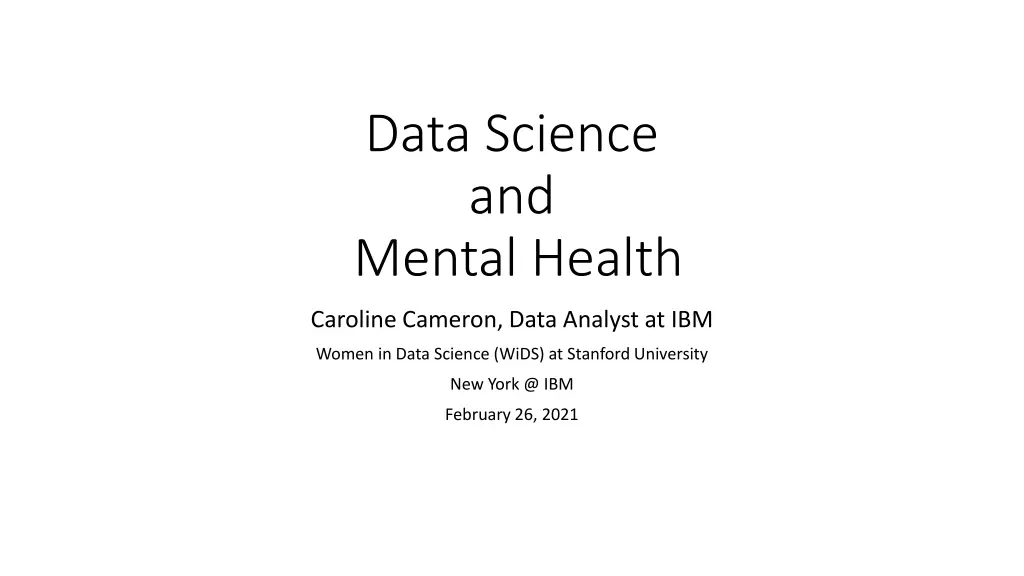
Exploring Data Science in Mental Health
"Discover how data science can revolutionize mental health care by quantifying brain data, analyzing mental health information, and identifying effective treatments. Overcoming obstacles such as data privacy and societal stigma, this approach aims to make mental health measurable, scalable, and AI-driven for improved outcomes and participant engagement."
Download Presentation

Please find below an Image/Link to download the presentation.
The content on the website is provided AS IS for your information and personal use only. It may not be sold, licensed, or shared on other websites without obtaining consent from the author. If you encounter any issues during the download, it is possible that the publisher has removed the file from their server.
You are allowed to download the files provided on this website for personal or commercial use, subject to the condition that they are used lawfully. All files are the property of their respective owners.
The content on the website is provided AS IS for your information and personal use only. It may not be sold, licensed, or shared on other websites without obtaining consent from the author.
E N D
Presentation Transcript
Data Science and Mental Health Caroline Cameron, Data Analyst at IBM Women in Data Science (WiDS) at Stanford University New York @ IBM February 26, 2021
Introduction What if we could instrument the brain and measure its health?
The prevalence of mental and substance use disorders globally 1 in 7 people (15%)
Problem Understand mental health disorders Health care data is quantitative (objective) Mental health information is qualitative (subjective) Current treatment is trial and error Discover causal relationships and identify effective treatments
Obstacles Data privacy Society stigma Current data Instrumented data Consolidated database
Approach Instrument Brain Data (Quantify) Result Data Analysis - - - - Match Treatment to Symptoms Measure Progress Define Improvement Scalability Mental Health Knowledge Information (Qualify) - - - - - - Data Collection Patterns Trends Causal Relationships Efficiency Effectiveness - - - Disorder Type Severity Symptoms
Summary Mental health needs to be measurable Use AI to learn and identify effective treatments Share results with participants Scale up


